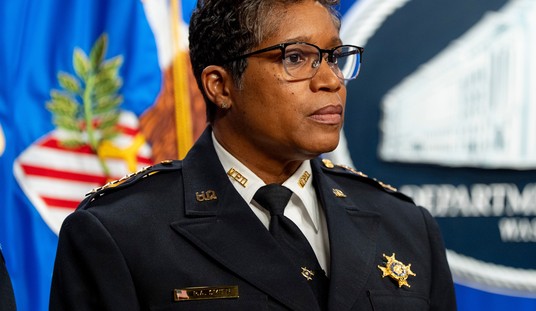When I first read this Reuters headline tweeted by the Most Slappable Face On the InternetTM I was sure there was some kind of a typo.
Reuters FLAG: The White House is looking to use an obscure ethics rule to weaken the special Russia investigation https://t.co/g513yyoho2 pic.twitter.com/8StyoXmlAt
— Kyle Griffin (@kylegriffin1) May 20, 2017
For months the whole anti-Trump coalition of NeverTrumpers and progressives have been railing on Donald Trump and his administration because it is alleged they don’t follow ethics rules closely enough. But no. Now they are accused of following them too closely.
The Trump administration is exploring whether it can use an obscure ethics rule to undermine the special counsel investigation into ties between President Donald Trump’s campaign team and Russia, two people familiar with White House thinking said on Friday.
I don’t even know what the sourcing on this means. The “White House” doesn’t think. Is this a strategy being actively pursued by the White House counsel? Or not. And there’s no such thing as “obscure ethics rules.” There are ethics rules. Period. Trust me. There is no section in the CFR that says “Main Rules” and another that says “Obscure Rules No One Has To Follow.”
Within hours of Mueller’s appointment on Wednesday, the White House began reviewing the Code of Federal Regulations, which restricts newly hired government lawyers from investigating their prior law firm’s clients for one year after their hiring, the sources said.
An executive order signed by Trump in January extended that period to two years.
“6. I will not for a period of 2 years from the date of my appointment participate in any particular matter involving specific parties that is directly and substantially related to my former employer or former clients, including regulations and contracts.
The same language has appeared in every code of ethics issued since Bill Clinton. As NPR sneered Trump’s Executive Order On Ethics Pulls Word For Word From Obama, Clinton.
This is not an obscure rule inside of Justice or any agency IG where lawyers are hired from the outside. It is not an obscure rule inside of NIH or EPA or Energy or Defense or any agency that hires people from private industry to act as regulators, procurement officers, etc. It is bedrock basic ethics rules.
Mueller’s former law firm, WilmerHale, represents Trump’s son-in-law Jared Kushner, who met with a Russian bank executive in December, and the president’s former campaign manager Paul Manafort, who is a subject of a federal investigation.
Legal experts said the ethics rule can be waived by the Justice Department, which appointed Mueller. He did not represent Kushner or Manafort directly at his former law firm.
If the department did not grant a waiver, Mueller would be barred from investigating Kushner or Manafort, and this could greatly diminish the scope of the probe, experts said.
The Justice Department is already reviewing Mueller’s background as well as any potential conflicts of interest, said department spokeswoman Sarah Isgur Flores.
So Mueller’s appointment violates ethics rules in place since 1993. But there is a process to review the potential conflict and determine if it is substantive. If no substantive conflict exists, then a waiver can be granted. If there is a conflict, then Mueller can’t be special counsel.
I’d be shocked if that happened.
One of the basic principles in this kind of potential ethical conflict is that disclosing the conflict removes the conflict. The idea is that once everyone knows you have, or have had, a business relationship with a person or company then the disclosure removes the conflict. For instance, when NIH issued its guidelines for managing food allergies in 2010, all the expert panel members had potential financial conflicts via their research grants, speaking engagements, and patents. You can see how these conflicts were resolved at the bottom of this journal article.
There is no scandal there. This is how the system is designed to work.
This is where I think Reuters goes batsh** crazy.
Even if the Justice Department granted a waiver, the White House would consider using the ethics rule to create doubt about Mueller’s ability to do his job fairly, the sources said. Administration legal advisers have been asked to determine if there is a basis for this.
Under this strategy, the sources said the administration would raise the issue in press conferences and public statements.
Moreover, the White House has not ruled out the possibility of using the rule to challenge Mueller’s findings in court, should the investigation lead to prosecution.
But the administration is now mainly focused on placing a cloud over his reputation for independence, according to the sources, who spoke on the condition of anonymity.
How does this even work?
Mueller has a solid reputation. He was appointed by the Deputy Attorney General appointed by Trump. Mueller’s credibility is the credibility of Rosenstein and Sessions. How does the White House even attack Mueller on the grounds of a rather tenuous business connection and damage his credibility? As Mueller’s business connection is with Jared Kushner (several times removed), wouldn’t Mueller be more likely to be attacked on that issue if he found nothing worth prosecuting–unless the claim is that he’s prosecuting Kushner because he’s a dick client. Beyond that, once the ethics waiver is granted there is no grounds to challenge Mueller in court based on a non-existent conflict.
If it is true, this is numbskullery of the worse type. The Trump White House is not going to get a better special counsel than Mueller. And launching a pre-emptive strike on Mueller seems like a very bad evolutionary strategy especially when the ethical issue is so minor that even ethics lawyers aren’t going to care.














Join the conversation as a VIP Member